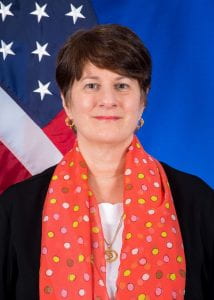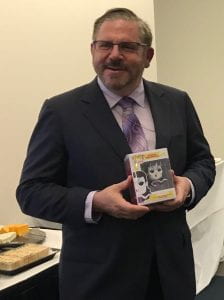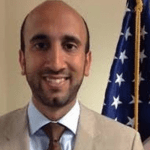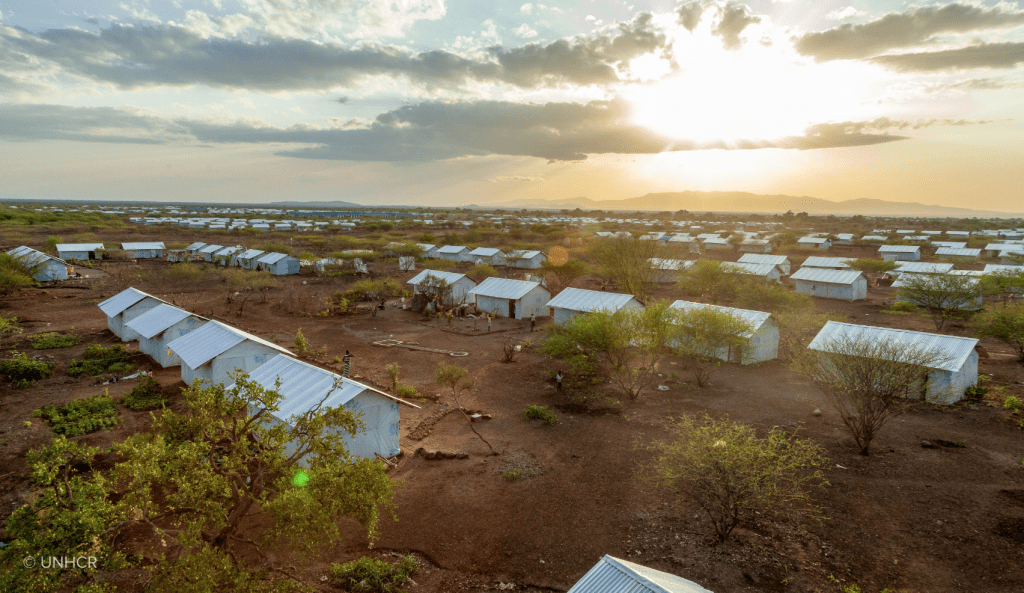IPDGC and the Walter Roberts Endowment are pleased to be able to share the video of the full event and the photos of the recent Walter Roberts annual lecture featuring Dr. Joseph S. Nye.
Photo Gallery
A Blog powered by students, young professionals and partners.
IPDGC and the Walter Roberts Endowment are pleased to be able to share the video of the full event and the photos of the recent Walter Roberts annual lecture featuring Dr. Joseph S. Nye.
Photo Gallery
On Thursday, January 30, eminent scholar of international relations and political scientist Dr. Joseph S. Nye delivered the keynote address for the 2020 Walter Roberts Annual Lecture at the George Washington University Elliott School of International Relations. Dr. Nye spoke on the topic of his latest book, “Do Morals Matter: Presidents and Foreign Policy.”
The Institute for Public Diplomacy and Global Communication (IPDGC) Director Janet Steele had noted in her introduction, “It is highly fitting that Professor Nye be the speaker at an annual lecture series that honors the memory of Walter R. Roberts… (who) throughout his 42-year career, was dedicated to the advancement of public diplomacy.”
In addressing the audience at the Walter Roberts Lecture, Nye suggested that they consider evaluating presidential decision-making along three ethical dimensions: intentions, means, and consequences. Nye spoke on how presidents, from World War II to the current day, were not fully constrained by the structure of the system and were able to consider choices for action – or non-action.
Hard power works pretty quickly. Soft power takes a long time – Joseph S. Nye
Later in a discussion moderated by Tara Sonenshine, former Undersecretary of State for Public Diplomacy and Public Affairs, Nye fielded a variety of questions from the audience; ranging from the current U.S. global role to Russian soft diplomacy – “there’s not much of it.”
The Walter R. Roberts Endowment, which supports the Annual Lecture, was created by the Roberts family and housed at the George Washington University, has hosted annual lectures with prominent foreign policy figures since 2011.
The video and photos of the 2020 Walter Roberts Annual Lecture is shared on the IPDGC website.
As this year draws to a close, IPDGC would like to recap some of our activities of the Fall semester. We hope that you’ve had the opportunity to attend some of the events:
Your Country, Our War: The Press and Diplomacy in Afghanistan, September 25.
Asia Centre: Fake News Legislation in Southeast Asia, October 17.
Work-Life Balance in a 24/7 Organization panel, November 7.
Please do support IPDGC in the year ahead!
Mark your calendars for the 2020 Walter Roberts Lecture featuring Joseph S. Nye. The talk will be on “Do Morals Matter? Presidents and Foreign Policy”, to be held on Thursday, January 30, 2020, at the GW Elliott School of International Affairs.
More information HERE.
 Public Diplomacy Fellow Emilia A. Puma had a great conversation with SMPA Undergraduates Jason Katz and Sarah Schornstein about her career in the U.S. Foreign Service. As a 28-year veteran, Prof Puma talked about her work – most recently as Acting DAS for Public Diplomacy and Central Asian Affairs in the South and Central Asian Affairs Bureau and also Foreign Policy Advisor to the Chief of Staff of the U.S. Air Force (CSAF) among others.
Public Diplomacy Fellow Emilia A. Puma had a great conversation with SMPA Undergraduates Jason Katz and Sarah Schornstein about her career in the U.S. Foreign Service. As a 28-year veteran, Prof Puma talked about her work – most recently as Acting DAS for Public Diplomacy and Central Asian Affairs in the South and Central Asian Affairs Bureau and also Foreign Policy Advisor to the Chief of Staff of the U.S. Air Force (CSAF) among others.Jason and Sarah also asked Prof Puma about her thoughts about a career in diplomatic service and getting the diversity of experiences that she has enjoyed.
Enjoy the conversation here.

IPDGC held a small reception to welcome the 2019-2020 Public Diplomacy Fellow Emilia A. Puma to the School of Media and Public Affairs at GWU last week. A number of faculty dropped by to hail the new diplomat-in-residence.
A 28-year veteran of the U.S. Foreign Service, Emilia will be teaching an SMPA undergraduate class on Public Diplomacy (SMPA 3350) for both Fall and Spring semesters this academic year.
Also turning up to the event was surprise guest, Karl Stoltz and his wife Tania Garry. The 2018-2019 PD Fellow, Karl will soon be leaving Washington, DC. IPDGC Director Janet Steele expressed thanks for his contribution to the Institute and SMPA during his tenure and wished him well for his upcoming posting to Russia to head the Public Affairs Section at the U.S. Embassy in Moscow.

 GWU graduate student Chanson Benjamin talked to Jay Raman, soon-to-be Cultural Attaché at the U.S. Embassy in Bogota, Colombia, and former Director of the Cultural Division at the U.S. State Department’s Bureau of Educational and Cultural Affairs in the Office of Citizen Exchanges. Jay spoke about his foreign service career and the importance of cultural diplomacy.
GWU graduate student Chanson Benjamin talked to Jay Raman, soon-to-be Cultural Attaché at the U.S. Embassy in Bogota, Colombia, and former Director of the Cultural Division at the U.S. State Department’s Bureau of Educational and Cultural Affairs in the Office of Citizen Exchanges. Jay spoke about his foreign service career and the importance of cultural diplomacy.
Listen to the PDx interview with Jay on Soundcloud.
By Cassie Rudolph, GWU undergraduate (SMPA 3350)

The director of U.S. government-funded news organization Voice of America discussed VOA’s future and freedom of the press worldwide at the GWU Elliott School of International Affairs on Monday, May 6, 2019.
Amanda Bennett, who has headed VOA for three years, spoke about the news agency’s energetic work to transmit information to countries with limited freedom of the press and VOA’s new efforts with the population of refugee camps. About 100 people attended the event, hosted by the Public Diplomacy Council, the Public Diplomacy Association of America and the University of Southern California’s Annenberg Center on Communication Leadership and Policy.
Bennett noted that VOA, which was founded during the Second World War and broadcasts news around the world in 46 languages today, is a nonpartisan and unbiased source of news, even though almost all of its funding comes from the U.S. government. The organization was originally created to broadcast Allied forces news into Nazi Germany during WW2.
Bennett said that VOA’s reputation rests on the separation of powers between VOA journalists and politic interests. “We are independent of the U.S. government,” she said. “That underlies our credibility. Because as you know from other state-funded organizations, they do not enjoy that same credibility.”
Bennett said VOA hopes to help reverse the current trend of declining press freedom around the world by highlighting the role of journalists and their impact. Global press freedom declined to its lowest point in 13 years in 2016, according to a 2017 report from Freedom House. “We’re going to be covering free press in all its intricacies with our journalists around the world,” Bennett said.
Bennett said VOA officials and journalists have recently added a new focus: delivering fair and free information to populations in refugee camps, where access to news is scarce. She said VOA has implemented two pilot projects in Kenya’s Kakuma refugee camp, which houses 165,000 refugees from Ethiopia, Sudan, and Somalia, and also in camps in Bangladesh harboring Rohingya people fleeing Myanmar, where they are persecuted.
Bennett said the people she spoke to at refugee camps are desperate for information about events around the world, and in their countries of origin. She added that VOA officials have tentative plans to introduce VOA programming into every major United Nations refugee camp. She noted that keeping refugees well-informed not only helps their own security and welfare but also encourages them to return home when it is safe to do so. Bennett said interactions she had in 2014 with refugees inspired her to expand VOA’s Learning English Program, which features daily broadcasts in English spoken at a slower pace to promote comprehension among English language learners.
She said that last month, VOA further increased these efforts by introducing person-to-person contact between VOA volunteers and refugee children and adults aiming to learn English. The program has a force of almost 5,000 English language instructors in the Rohingya camps, Bennett said. She said the program will benefit children and adult refugees by teaching them to speak a language that makes them more attractive to employers worldwide.
“I tell the young interns at Voice of America,” Bennett concluded, “That one day you’re going to be walking through a street someplace in America or Southeast Asia and a 25-year-old is going to come up to you and say, ‘I was a refugee, in the Rohingya camps, and I got a job in Indonesia or Thailand or Canada and escaped poverty all because you taught me English.”
Whether fighting on the frontlines of freedom of speech in global hotspots or in providing new opportunities to abandoned refugees, VOA continues telling America’s story to the world and advancing U.S. national interests, one listener at a time.

GWU undergraduate student Isabella Marchese interviewed retired Senior Foreign Service officer Thomas Miller for the latest epsiode of Public Diplomacy Explained, PDx.
As the chair for the Walter Roberts Endowment Advisory Committee, a professorial lecturer at the George Washington University, and an ardent PD watcher, Miller is able to share his career path and experiences, while also offering observations on current challenges in public diplomacy; including building credibility with the press, an alternate take on soft power, and countering disinformation.
Listen to his interview here: PDx Explained

By Cassie Rudolph (GWU, Political Communication, Class of 2020)
Public diplomacy takes many forms, which are constantly shifting and adapting to meet the ends of an evolving world. The emergence of social media, for example, has changed the structure of many public diplomacy strategies and propaganda campaigns root and stem. But while social media may change the way in which messages are spread, other changes are changing its content as well. The concept of eco-diplomacy has emerged as a new form of public diplomacy in the past couple of decades, and it has quickly risen in popularity and importance in global diplomatic relations.
The U.S. Department of State defines eco-diplomacy, or sustainable diplomacy, as “the practice of advancing ecological protection by conducting diplomacy that leverages examples of conserving natural resources, sustainable operations, and effective environmental stewardship.” The idea that sustainability and environmental stewardship could be used as a means of developing foreign relations is still a young concept, very much still being shaped by diplomats working today.
The first consideration of eco-diplomacy as a concept occurred in 1992, when the United Nations held its first-ever Conference on Environment and Development, which focused on sustainable development standards going forward. During the summit, the UN came together to create Agenda 21, a plan of global action focused on environmental stewardship and development for the 178 participating countries. Since then, the CED has met twelve times to determine the way forward for some of the most pressing global environmental matters today.
In the United States, we have seen eras of eco-diplomacy come and go with each Administration. The terms “sustainable diplomacy” and “eco-diplomacy” were first coined by the Department of State under the Obama administration, although President Carter had made environmental relations a foreign policy priority decades before. President Carter’s solar panels were removed from the roof of the White House under the subsequent Reagan administration, and the policy push was also dropped. Similarly, under President Trump, the Administration has downplayed environmental sustainability as a policy value for U.S. diplomacy.
So what exactly does eco-diplomacy look like? That depends on the country involved. Some have taken more traditional diplomatic routes or tried to lead by doing, such as the introduction of the first LEED Platinum U.S. Embassy in 2009, under the Obama Administration. Other states have taken less direct methods to promote eco-diplomacy, with some countries becoming well-known for their advancements in sustainable technologies or conservation efforts.
A quintessential example of eco-diplomacy in the form of eco-tourism— a feature that stands out among the rest in both function and beauty – is located in Kallang, Singapore. Singapore features solar-powered “super-trees”, which reach anywhere from 80 to 160 feet tall, and are in fact not trees at all, but are rather tree-like structures that hold the world’s largest vertical gardens. The trees’ location , called “the Garden by the Bay,” also features the world’s largest glass greenhouse.
, called “the Garden by the Bay,” also features the world’s largest glass greenhouse.
“The Garden by the Bay” has attracted 20 million visitors in the first three years of its opening, and the gardens are only the first chapter of Singapore’s plans to integrate flora and fauna into city life in what officials describe as a transition from “Garden City” to “City in a Garden”.
“The Garden by the Bay” serves as a prime example for the power of public eco-diplomacy. Singapore is famous for being a smaller developing country based on trade and commerce; it has now become a world leader in what the future of city life may look like.
Indeed, it’s entirely possible that we will soon see cities begin to transition into a more symbiotic design with the world around them. A residential building in Milan, It aly, incorporated the idea of “vertical gardens” into the basic designs of their buildings, which helps in mitigating smog, producing oxygen, and creating a potential habitat to reintroduce fauna into the city.
aly, incorporated the idea of “vertical gardens” into the basic designs of their buildings, which helps in mitigating smog, producing oxygen, and creating a potential habitat to reintroduce fauna into the city.
These are just a few examples of ways that countries and individual cities can use eco-diplomacy to change their public reputation to show alignment with the values of environmental stewardship. In the era of imminent global climate change, those who adapt fastest may have significant diplomatic advantages over those that are left in the past. The best path to success in the global competition for “soft power” may be the greenest one.
By Tess Peterson, GWU undergraduate student (SMPA 2021)
As a student in Washington, D.C., I knew the norm was to have an internship early in my college career. But I have had several! In fact, I’ve held three different positions, including the latest as Government Affairs Intern at the Fulbright Association.
The Fulbright Association is the official alumni association of the State Department’s prestigious Fulbright program, which takes scholars of all ages on overseas exchanges to study, learn, and grow. I had heard of study abroad programs and other exchange programs before, but none of the alumni of these various programs expressed the same pride that Fulbright alumni do.
In corresponding with members of the Fulbright Association, I found that they were always willing to share their experiences and memories with me. They include their Fulbright overseas location and year of their grant in all of their email signatures and mention it on every phone call I have. At networking events, they wear it proudly on their name tag and introduce themselves with their Fulbright study location, rather than where they are from in the U.S..
Fulbright means so much to them that they volunteer to drive miles to advocate for this program. At our office, we have planned several Advocacy Days, where former Fulbrighters travel to Washington, D.C., to meet with elected officials to share their stories. For most of the members of the Fulbright Association, the experiences and lessons that shaped them matter so much that they now consider being a Fulbright scholar a major part of who they are. I had never seen individuals become such passionate alumni for an organization they were a part of so long ago.
Their passion speaks volumes about the overall impact of international education programs. Through these programs an individual can learn a new language, discover a new religion, meet amazing new people, understand better the issues of other countries, learn a lot about global politics, and do so much more. The Institute for International Education of Students (IES) recently ran a survey that looks at the impact of studying abroad as an undergraduate student on a student’s life after graduation. An overwhelming number of students returning from time studying or working abroad reported feeling more mature (95%). Likewise, 48% of students stated that they have worked internationally or participated in new volunteer activities since studying abroad. Additionally, 94% stated that the overseas experience continues to influence their interactions with people today. It is clear that educational exchanges do not end when you leave your host country, but have a lasting impact on your education, your career, and your long-term personal development.
Personal stories experienced by the individuals on an exchange are not the only benefit of an international education program. According to the Erasmus Impact Study, 64% of all employers think international experience is important for hiring. In fact, graduates of the Erasmus program had an unemployment rate 23% lower than that of those who did not study abroad.
The number of the students who are studying abroad is growing at a rapid rate. The Organization for Economic Co-operation and Development (OECD) has predicted that that, with current demographic changes, the international student population is likely to reach 8 million by 2025. These students come from a variety of different areas of studies and majors. According to Statista, 29% of students who go abroad study STEM, 25% study business, 24% study social sciences and 32% study other topics. With a variety of different programs, every student from every field of study has the chance to learn more while abroad.
Working at the Fulbright Association I saw these statistics come to life. I saw our alumni getting job promotions, beginning graduate studies at prestigious universities, and connecting with each other over their shared ideals. This helped solidify my decision to study abroad next year. By working with people like these, I have already become more aware, more educated, and more inspired. I can only hope my semester abroad will have the same impact that I have felt so far, just being around the members of the Fulbright Association.